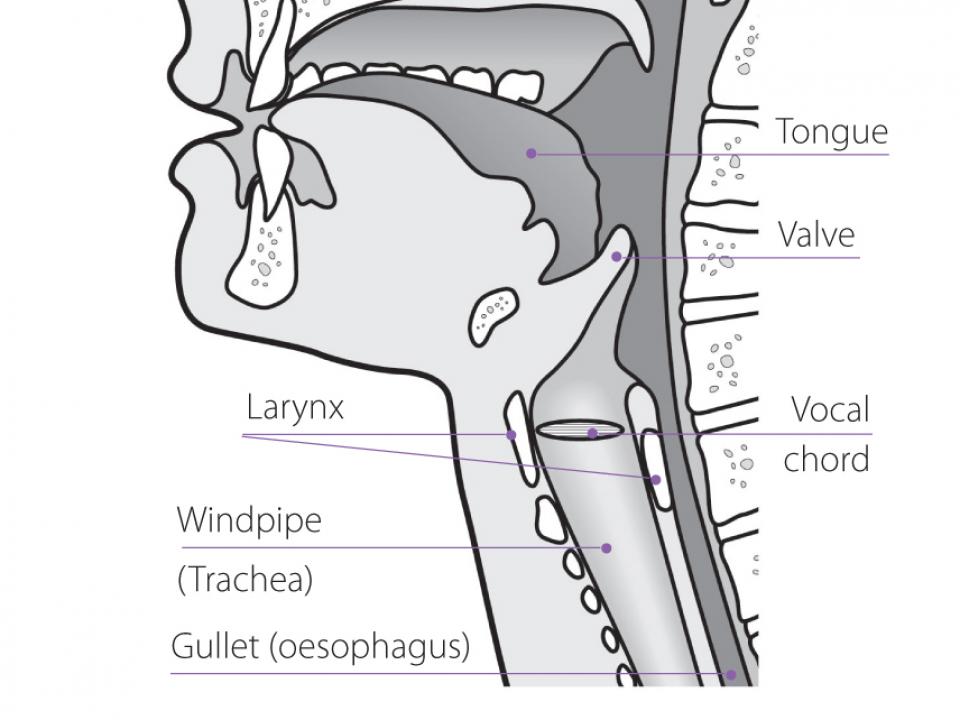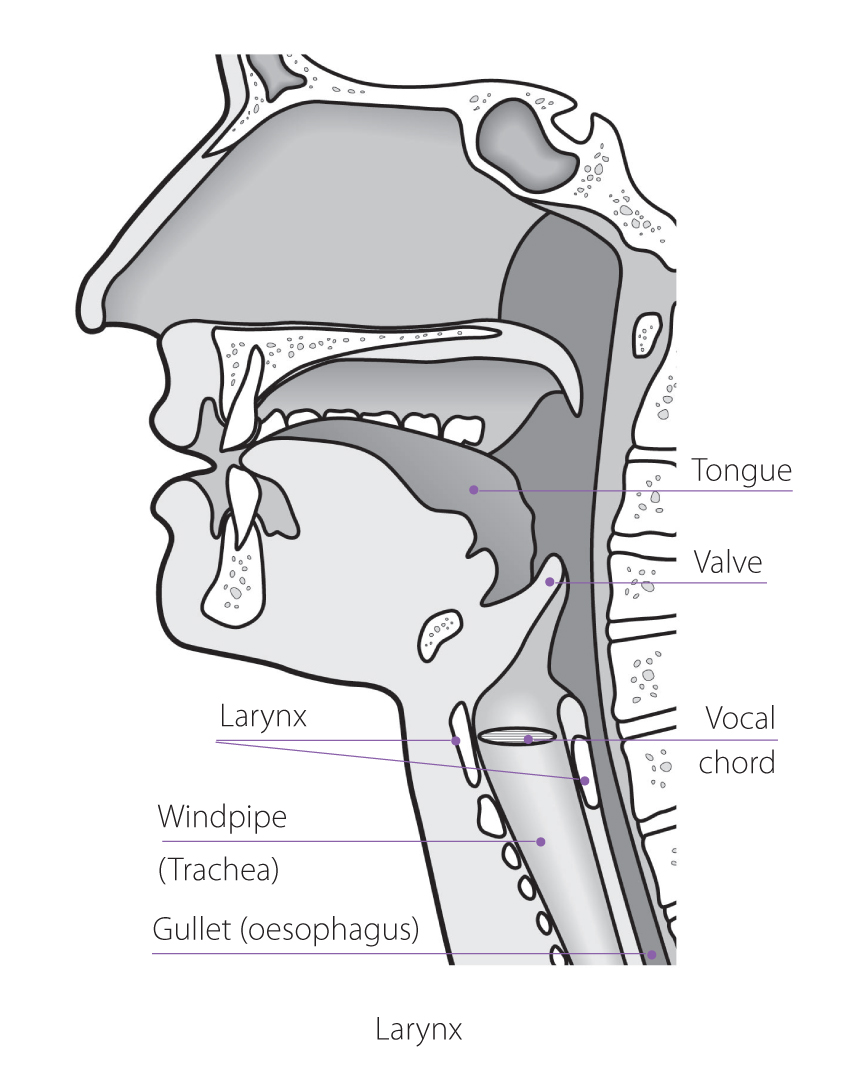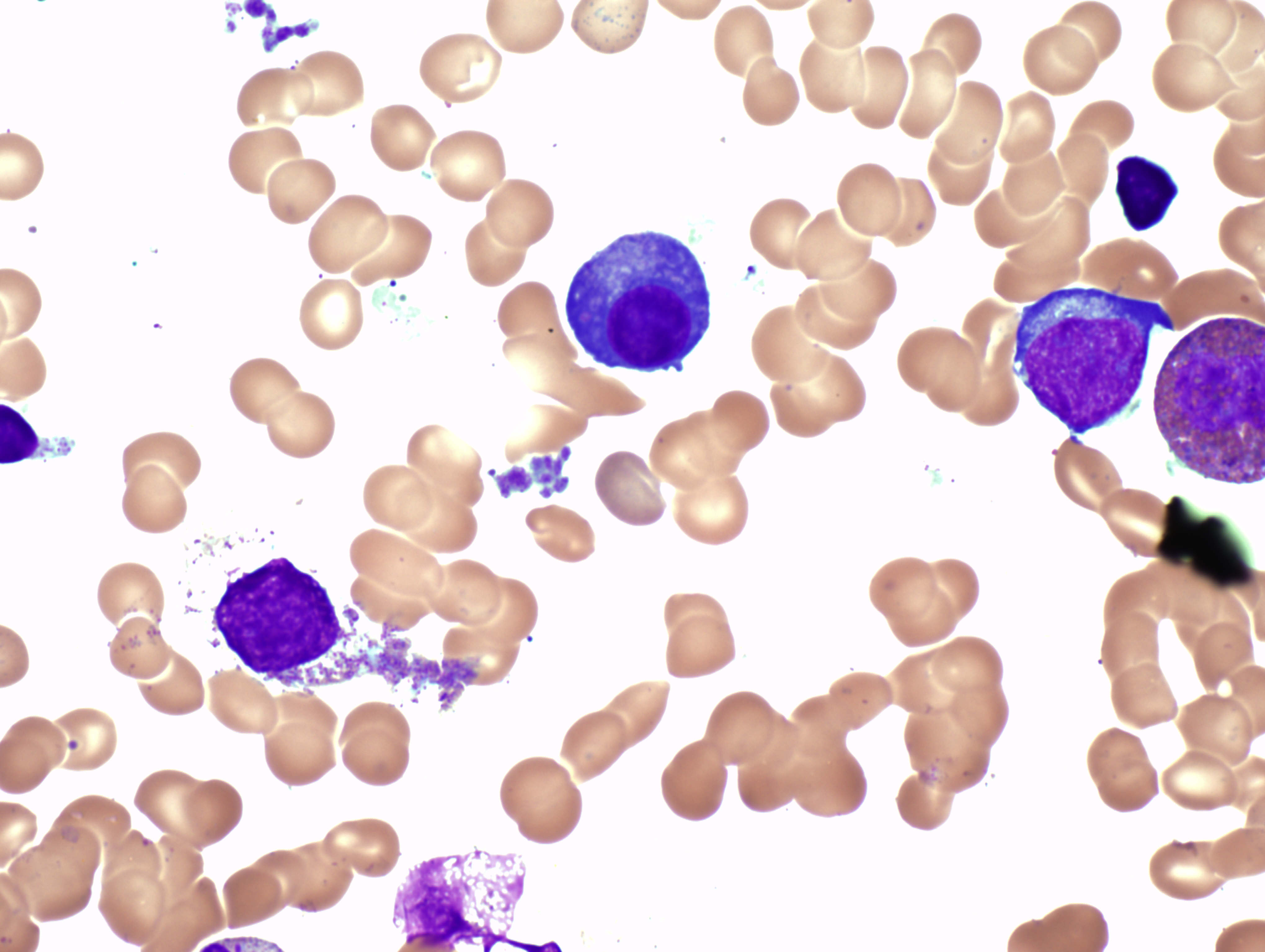
Laryngeal Cancer
Laryngeal cancer affects the larynx, a part of your throat also called your voicebox. It is located in your neck just above your windpipe.
Laryngeal cancer affects about 185 people in Ireland each year.
What is laryngeal cancer?
When cancer develops in your larynx, the cells change and grow in an abnormal way and form a tumour. The tumour can affect how your voice works.
What are the types of laryngeal cancer?
- Squamous cell cancer. About 9 out of 10 laryngeal cancers are of this type. Squamous cells are flat skin-like cells that cover the surface of your epiglottis, vocal cords and other parts of your larynx.
- Adenocarcinoma and sarcoma. These are rarer types.

What is my larynx and what does it do?
The larynx is also known as the voicebox. It is a small tube that sits at the entrance to your windpipe (trachea) in your neck. The larynx allows the air you breathe to reach your lungs through your windpipe.
It also acts as a valve to prevent food and drink from entering your airway when you swallow. The larynx also contains two vocal cords. When air passes through them they vibrate. This allows you to make sound when you speak.
The larynx is made up of three parts:
- The supraglottis: the area above the vocal cords
- Glottis: the area in the centre where the vocal cords lie
- Subglottis: the area just below the vocal cords that connects to the windpipe
More information about laryngeal cancer
More information about a laryngeal cancer diagnosis
More information about laryngeal cancer treatment
Treatment for laryngeal cancer includes surgery, chemotherapy and radiotherapy. For more information about treatments for laryngeal cancer, visit our treatment page. For specific treatment information use the links below.
Coping with laryngeal cancer treatment and side-effects
Looking for support?
Our cancer support section contains information and advice on coping with cancer for diagnosed patients and their loved ones.

The Irish Cancer Society uses the most up-to-date cancer statistics from the National Cancer Registry Ireland, available on www.ncri.ie
For more information
Phone
1800 200 700












